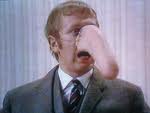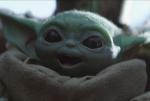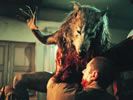 koryk, on May 5 2009, 02:08 PM, said:
koryk, on May 5 2009, 02:08 PM, said:
Woa, easy there. There was no scorn in my post, as evidenced by the first sentence of my post. And the third. And fourth. The second was maybe a little heavy handed, but if you got scorn out of that, you're overly sensitive. I didn't provide alternate ideas because it seemed obvious that my alternate ideas could be summed up as "not what he said." It's like if you had said that you think all fantasy by definition has a duck in it. If I were to then post that I disagree, I would take it for granted that everyone would understand that my alternate stance is "No, that's wrong. In no way does fantasy require a duck."
But, you got fired up from my imagined snub and had to get chippy. So here is my breakdown of exactly what i disagree with about your post. My posts are in bold.
 koryk, on Apr 20 2009, 04:37 PM, said:
koryk, on Apr 20 2009, 04:37 PM, said:
No it isn't. It's a broad category with many sub-genres, but "completely generic" is overstating things.
However, "our" fantasy, i.e. the types of novels that are read by members of this forum, tend to be cleverly grouped together by bookshops into a single area of the shop,
It would seem that you haven't noticed how eclectic the reading choices of members are. We read a lot of non-fantasy. Thus, the types of novels read by forum members are not in fact clumped together in a single area.
whereas there are other types of fantasy that appear in the regular fiction areas.
Nope. If they're not in the fantasy section, they're probably not fantasy. I recommend looking at what section they ARE in, this will inform you of the type of book.
Think of any novel set in a historical time period (e.g. crusades). This is fantasy
Again, nope. Fiction set in a historical time period and place are by definition historical fiction, not fantasy.
since all but a few of the major characters and events are made up by the author and as far as we are concerned it might as well be another world.
I'm beginning to wonder if you are misunderstanding the word fantasy. What you've described here is called fiction. Just because an author makes something up, it doesn't magically become fantasy. It's fiction, by definition. Made up does not equal fantasy.
and as far as we are concerned it might as well be another world.
Ummmm, no, as far as we are concerned it is in the middle east. I can show it to you on a globe. If it was the crusades on a fantastical (see what I did there?) planet, then sure, it's fantasy. But, it's on Earth.
Similarly a lot of the "what if" novels (e.g. germany won WW2) I would consider as fantasy since they deal with a situation that is clearly alien to what actually happened.
See, again you're taking a genre that already has a name and exists and deciding it should be called fantasy. By definition, a book that shows alternate versions of real history is called historical fiction, or speculative fiction. Not fantasy. Maybe if Hitler was a telepath it would stray into the realm of fantasy.
So, how do bookshops decide where a fiction book should go?
First they separate them by genre. Things that are fantasy go in that section. Things that are not fantasy go in other sections, as discussed above. After that it's alphabetical by author's last name.
I reckon our type of fantasy requires specific elements,
I agree!
and this does not include a demand for magic.
Some sort of magic is pretty standard in fantasy. It's possible to have fantasy without it, but unusual. This is starting to delve into subgenres of fantasy. If there's no magic, there had better be some other fantastical (see what i did again) elements to make up for it.
These elements would (in general) be:
a) the principal characters are wholly fictional and have something in their history that makes them special in some way
This is a characteristic of fiction, not fantasy. The word fictional would be your clue. Most characters in any kind of fiction have something that makes them special. If they didn't, why would there be a book written about them?
I fail to see how any of these examples other than magic would qualify something as fantasy. By this definition any book about a priest, a ninja, or anyone who has a philosophical view is fantasy. Nope.
c) the story that plays out is heavily dependent on this controlling ethic
see my last comment
I am sure there are other identifiable elements, but it's late. Any suggestions?
Your definition of fantasy is the definition the rest of the world uses for fiction. Think of how many fiction books fit into your description. Almost every novel ever written is fantasy according to your criteria.
Fantasy includes most if not all of these elements: a fantastical (meaning a made up place, not Jerusalem) setting, fantastical people who often have fantastical abilities such as magic, fantastical creatures, and typically a technological level that could be considered pre-modern. Often there will be people killed with swords. Not all fantasy has these elements, and there are probably some that i won't think of until I hit post. A good rule though would be that if a book has most or all of these elements, it's fantasy, and if it has none of these it is almost certainly is not.
So there. Wouldn't this have been nicer if we had left this at my first post?

 Help
Help
















